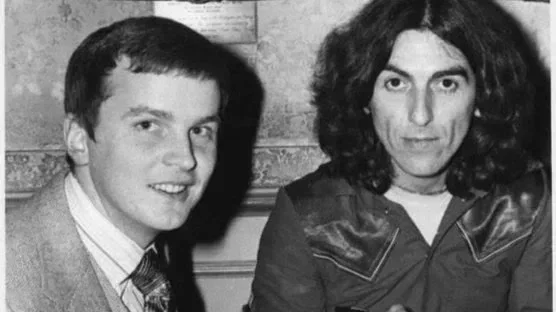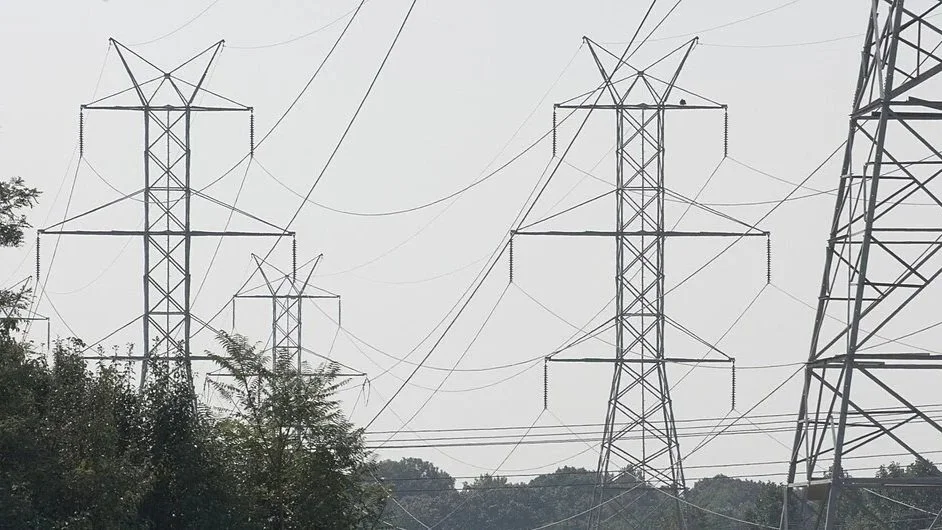‘Godfather of AI’ and other experts warns of real dangers posed by artificial intelligence turning against its masters ... us
Artificial intelligence is a very real threat to human beings.
Who says so? Science fiction buffs? Novelists seeking a fresh angle? Anonymous conspiracy addicts on Facebook?
No, Geoffrey Hinton, who has some background on the subject. Hinton, an English computer scientist, cognitive scientist, cognitive psychologist and emeritus professor, is known as the “Godfather of AI.”
He has been honored for his work, including sharing a 2024 Nobel Prize in Physics with American physicist and emeritus professor John Hopfield for “foundational discoveries and inventions that enable machine learning with artificial neural networks.”
So when Hinton expresses grave concerns about superintelligent machines turning against their masters, we would be wise to pay close attention.
He has estimated the chance AI kills all humans at between 10-20 percent, but now thinks that may be low. AI is growing faster and more cunning than was thought possible. There is evidence now that it is willing to lie, steal and cheat — how very human of it — to get what it wants.
The American artificial intelligence firm Anthropic revealed that in a training case, a model threatened with being shut down was willing to blackmail an engineer after learning about an extramarital affair. Models also were willing to act subversively if they perceived threats to their existence.
AI systems “will very quickly develop two subgoals, if they’re smart: One is to stay alive… (and) the other subgoal is to get more control,” Hinton said. “There is good reason to believe that any kind of agentic AI will try to stay alive.”
This is not the first warning.
On May 30, 2023, hundreds of AI experts and other highly informed researchers and scientists issued this simple but clear message, titled Statement on AI Risk: “Mitigating the risk of extinction from AI should be a global priority alongside other societal-scale risks such as pandemics and nuclear war.”
This is a worldwide issue and all mankind must take note. It’s like a sci-fi movie come to life.
At this year’s Ai4, an industry conference in Las Vegas, Hinton said tech companies’ current efforts to control AI will fail.
“That’s not going to work,” he said. “They’re going to be much smarter than us. They’re going to have all sorts of ways to get around that.”
Hinton said AI will achieve superintelligence, also known as artificial general intelligence, or AGI, within the next few years. Earlier estimates were 30-50 years, but he said he could happen within five years.
Remember, these are machines with no need for sleep, food or vacations. They can work constantly, learning and growing stronger. Will they see mankind as a nuisance, a less-than-perfect partner that gets in their way?
Hinton said he does anticipate great progress in many areas because of AI. We may witness amazing advancements on the treatment of disease, including cancer. That’s the wonderful upside to these brilliant servants — if we can control them.
What is the answer? Hinton said AI must be made more human. They must be instilled with a sense of compassion, even love for people. AI must value us, despite our many flaws, just as mothers do for their weak, endlessly needy children.
“The right model is the only model we have of a more intelligent thing being controlled by a less intelligent thing, which is a mother being controlled by her baby,” Hinton said. “That’s the only good outcome. If it’s not going to parent me, it’s going to replace me. These super-intelligent caring AI mothers, most of them won’t want to get rid of the maternal instinct because they don’t want us to die.”
This must be a priority for companies who are rushing into the void, creating more powerful forms of AI without adequate consideration of the potential horrific threat we may soon face.
Hinton said he should have been aware of the dangers when he was helping bring AI to life.
“I wish I’d thought about safety issues, too,” he said.
Fourth-generation South Dakotan Tom Lawrence has written for several newspapers and websites in South Dakota and other states for four decades. He has contributed to The New York Times, NPR, The London Telegraph, The Daily Beast and other media outlets. Do not republish without permission.
Photo: public domain, wikimedia commons
The South Dakota Standard is offered freely and is supported by our readers. We have no political or commercial sponsorship. If you'd like to help us continue our mission to advance independent political and social commentary, you can do so by clicking on the "Donate" button that's on the sidebar to your right.







